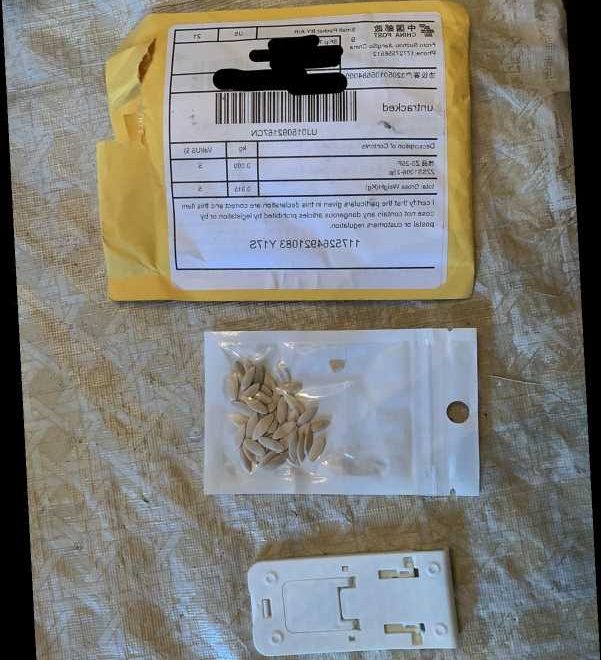

In Kentucky, the fourth known state to report the mysterious packages, Commissioner of Agriculture Ryan Quarles stressed the importance of not planting them in a message on his Twitter account.
"We don’t know if this is a hoax, a prank, an internet scam, or an act of agricultural bio-terrorism," he wrote alongside a video. "But we do know unsolicited foreign seeds could be invasive & introduce unknown diseases to local plants, harm livestock & threaten our environment."
"We don't know what they are, and we cannot risk any harm whatsoever to agricultural production in the United States," Quarles added in the clip. "We have the safest, most abundant food supply system in the world and we need to keep it that way."
The agricultural departments in Maryland, Minnesota, Washington, Ohio and Georgia also issued warnings on their social media accounts and posted photos of what the various packages and seeds have looked like.
Some packages list the contents as "gardening supplies," while others have been labeled as "stud earrings" and jewelry. The seeds pictured in each package vary in size, color and shape.
The USDA said it's currently working with the Department of Homeland Security’s Customs and Border Protection, other federal agencies, and state departments of agriculture to collect the seeds and test whether their contents "could be of concern to U.S. agriculture or the environment."
Though the packages seemed to be originating from China, the USDA noted that it does not "have any evidence indicating this is something other than a 'brushing scam' where people receive unsolicited items from a seller who then posts false customer reviews to boost sales."
In North Carolina, Phil Wilson, the director of the Plant Industry Division, explained in a statement that "foreign, third-party sellers use your address and Amazon information to generate a fake sale and positive review to boost their product ratings,” citing the Better Business Bureau.
"Seeds are just one of the items used in this scam, however, you could receive other inexpensive items such as rubber bands, plastic toys, or empty bags," Wilson added.
Those who have received an unsolicited package of seeds in the mail are urged to contact their state agricultural officials immediately.
Source: Read Full Article
